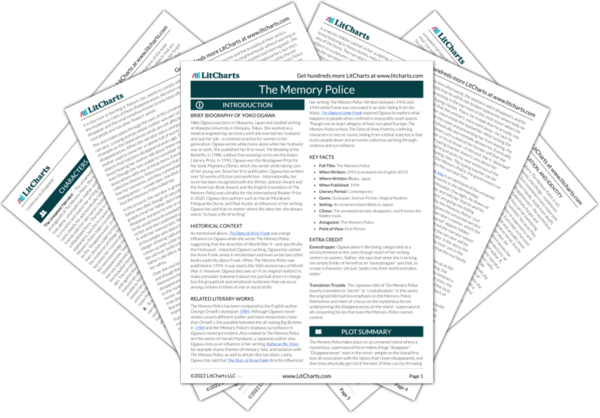In The Memory Police, birds symbolize how memories of a lost loved one—even strong ones—vanish over time. The unnamed narrator’s father was an ornithologist, and when she was younger—before the “disappearance” of birds—she would spend time watching birds with him while he worked. She used to love doing this and would even make up an excuse, like bringing him his lunch, just to visit him at the observatory. Birds “disappear” about five years after her father dies, meaning that most of the island’s inhabitants collectively forget about them. But this portion of the narrative is condensed so that her father’s death and birds disappearing seem to happen simultaneously, which this narratively links the narrator’s memories of her father to her memories of birds. In this way, birds act as a stand-in for all of the positive and connective associations she had to him. Since the narrator is often not even able to remember what birds are called—she calls them “creatures”—the story uses the disappearance of birds and the narrator’s lost connection to them to symbolize how even poignant memories associated with a loved one who passes away are possible to forget altogether.
Birds Quotes in The Memory Police
The little brown creature flew in a wide circle and then vanished north. I couldn’t recall the name of the species, and I found myself wishing I’d paid more attention when I’d been with my father at the observatory. I tried to hold on to the way it looked in flight or the sound of its chirping or the colors of its feathers, but I knew it was useless. This bird, which should have been intertwined with memories of my father, was already unable to elicit any feeling in me at all. It was nothing more than a simple creature, moving through space as a function of the vertical motion of its wings.












